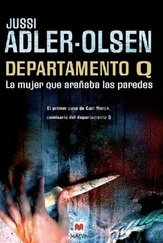“Far from it,” the man who cleans up this office after hours keeps muttering to himself. “Far from it. Far from it.”
The most important line, the longest and the most embittered, was the line for the student restaurants. Some people stood in it for forty-six straight hours. The restaurant card required that all other cards and documents be in order. Quite often, an American or other foreign student would arrive with his completed file at the desk and be met with the stare, the shrug, and look of perfect insolence which characterizes, everywhere, the bureaucrat who likes his power to obstruct. Many students wept. Most of them persisted, with that flat determination to understand the country and the language which took them in so many different ways. In no other language, for instance — certainly not our own — were we so improbably familiar with the vocabulary of churches, with naves, Flamboyant Gothic arches, apses, capitals, transepts; or with the words of medieval hymns and songs of courtly love. We spoke of the quality of the blue in the stained-glass windows of Chartres, which modern science had not been able to reproduce, as though the medieval craftsman who had produced it were a colleague. He had, we knew, billed his diocese for the purchase of sapphires ground up to create that color. Modern science had, at least, established that sapphires played no part in its composition at all. It was our first, most scholarly appreciation of the padded expense account.
The fashion models walked down the ramp, surveyed the audience with utter, unamused contempt, turned, sauntered out. For some reason, this induced the lady customers to buy. Within a year, convinced of many European things and yet unalterably American, we all went home.
We are thirty-five. Some of us are gray. We all do situps or something to keep fit. I myself wear bifocals. Since I am not yet used to wearing specs at all, I tend to underestimate the distance required, for instance, for kisses on the cheek. If the other person wears glasses, too, we are likely to have a brushing clack of frames. We have had some drunks, an occasional psychotic break, eleven divorces, one autistic child, six abortions, two unanticipated homosexuals, several affairs of the sort that are lifelong and quiet and sad, one drowning, two cases of serious illness, one hatred each, no crimes. No crimes is no small thing. We might have run over somebody in high school and left the scene. Before that, we might have stopped putting pennies on tracks to be bent by trains, and tried to hitch rides on freight cars just as they began to move. We were always daring each other to do that. It would not have been a crime, of course. But it would have taken us over that edge of irreversible violence where, whether in a pattern of years or in the flicker of an oversight, crime begins.
“Far from it. Far from it,” he is muttering to himself again.
Every child, naturally, who was not a sissy swam. In lakes, and seas, and heavily chlorinated pools, they earned their certificates, Beginners, Intermediate, Advanced, Junior Life Saving, Senior Life Saving — all the New England summer accreditations of the healthy child. There has been, always, the preoccupation of people of our age and class with documents: degrees, cards, certifications, records, licenses. One got them the year one became of age to get them. Of age. People who missed their proper year often remained afraid of swimming, driving, hunting, or whatever, all their lives. The accreditations all began, though, in the water: at five, the dog paddle, and at twelve, the dive to break the death grip of some giant instructor, in order to tow him, by means of the chin carry, the hair carry, the cross-chest carry, whatever other carry, home. By now, there have been many years of accepted assurances that the water’s fine — quite warm, actually — once you get into it; many years’ insane passings on of such an assurance. And here we all are. All that is, except Barney, whose sailboat overturned two years ago last November. It is probable that he had been drinking. When Jim and I took him to dinner the preceding August, he said he was bored with his job.
“Now, class. Now, seniors,” the high school principal said, interrupting the Pledge. “It’s one nation. Under Gawd. Indivisible. Some of you are saying under Gahd. In fact, most of you. What are the parents going to think? What are your teachers going to think? What are the visitors from Hartford going to think? This is very important. Many of you are college bound. Now say with me, please. Gawd. Again. Gawd. Un der Gawd. In divisible. Good. Now let’s resume. Give it the feeling you’re going to give it on graduation day.” Her name was Miss Crosby. Crawsby, not Crahsby. We let it pass.
From her earliest childhood, Jametta Anna Scozzafava had mysterious sources of information about what holiday it was. No school tomorrow, she would say — often quite late for a small child to be up on a cold evening: Scragg Day, or Teachers’ Records Day, Moss Day, State Commemoration Day, or High School Bus Repairs. Mysteriously, these holidays did exist, although few of them recurred from year to year. Jametta also knew holiday nights: Chalk Night, Garbage Night, Crab Night — and, I think, Teachers’ Records Night, although I am not sure. Chalk Night and Garbage Night were clear enough. I never knew what were the right observances for Crab Night and, one year, for Seven Moon. From third grade on, Jametta spent most of her classroom hours either whispering with Moose Natale, or absent altogether with the Passcard. In her senior year, however, Jametta sat in front of one Alvin Benso, in the first row of Miss Keane’s English class. We were doing our required Shakespeare play. The state seemed to require of its students one half year of world history, Mesopotamia to the present; one half year of American history, Jamestown to the present; one solid year of Biology, in which one earthworm and one frog must be dissected; and, somewhere in four years of English classes, a Shakespeare play. Miss Keane’s method of teaching Shakespeare was to assign parts for reading by row, characters in order of appearance: first seat, first row, first part, and so on along the rows. The class was doing The Merchant of Venice , Miss Keane’s favorite. Miss Keane had done her disquisition about Shylock — a villain she found comparable, and perhaps even related, to all the many traitors in our own time, our own country, brainwashing our boys abroad, flashing subliminal messages on television, stealthily approaching, if they did not already have, our minds. Miss Keane had subsided. The reading started. Jametta was Portia. It fell to Alvin to read Lorenzo. “Lorenzo Benso!” Jametta shouted. “Lorenzo Benso!” swept the classroom. It was our first political slogan, and the witticism of Jametta’s academic life.
“Far from it,” the shuffling man is muttering to himself again. “Far from it.”
The Albany legislator wept as he cast his vote. His brother-in-law was up for a judgeship. He had no choice. “I will hear no ill spoken of Rosa Addio,” the head of a local school board said. “She is a fine Christian woman.” The lobbyist for the teachers union blanched. “Now, on the Alabama resolution,” the convention speaker said to the delegates in caucus, “you can vote your conscience. Or with your union.” “Ah, jobs, jobs in the ghetto,” said the tenured pedant on the investigating committee that, yearly, covers up corruption in our branch of the city university. “Ghetto jobs is our bête noire. Excuse me.”
The clerk of the morgue of this paper is an irascible man. Reporters are always taking his files away, forgetting to sign for them, keeping them, losing them, throwing them away. Over the years, it has made the clerk ill. I signed for a file, took the folder to my desk, and then took it home. Everybody does it. It is against the rules. After four days, I brought the folder back. The clerk of the morgue was incensed. What, he demanded to know, if the man whose file it was had died in those four days; what, in the absence of the file, would the obituary have been constructed from — had I considered that at all? Well, I said, since I had signed for the file, if the man whose file it was had died, somebody could have called me up. I would have brought the folder back. True, the clerk said, but there were questions of another sort. What if, in those four days, a new fact about the man had come to light, a fact that ought quite surely to be added to the file; what, in the absence of the file, was there to add the fact to, what rubric, category, or place was there to put the new fact in — had I considered that at all, had I given it one moment’s thought? I said I had not. The clerk, becoming pale with rage, said he might have to raise the matter with management. People seem to be unhappy in so many different ways. I’ve always liked the wrathful keepers of the files.
Читать дальше












